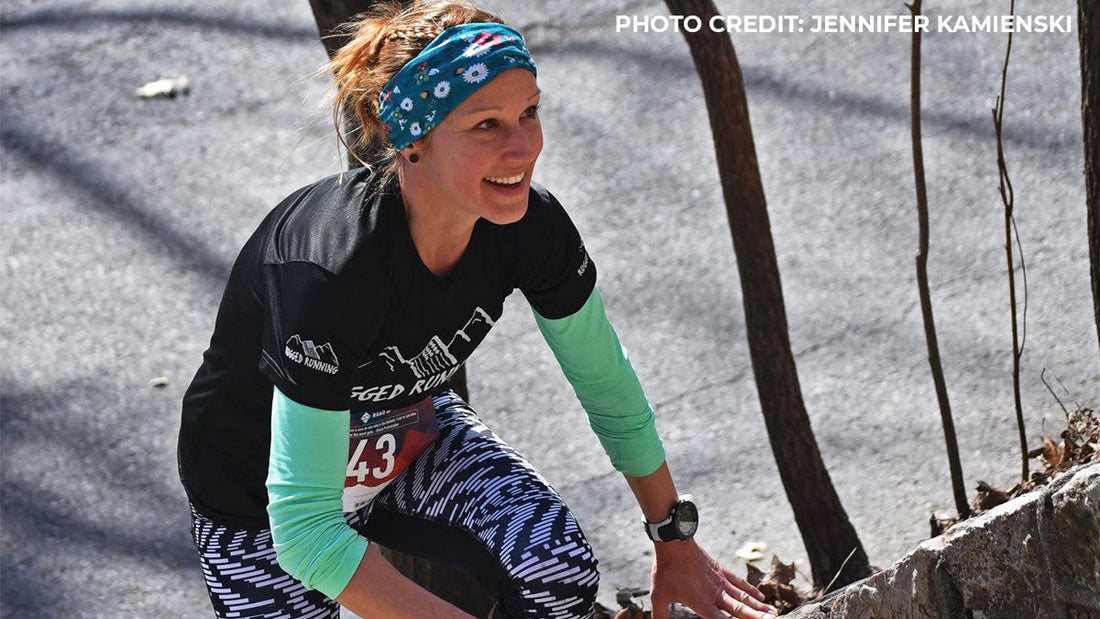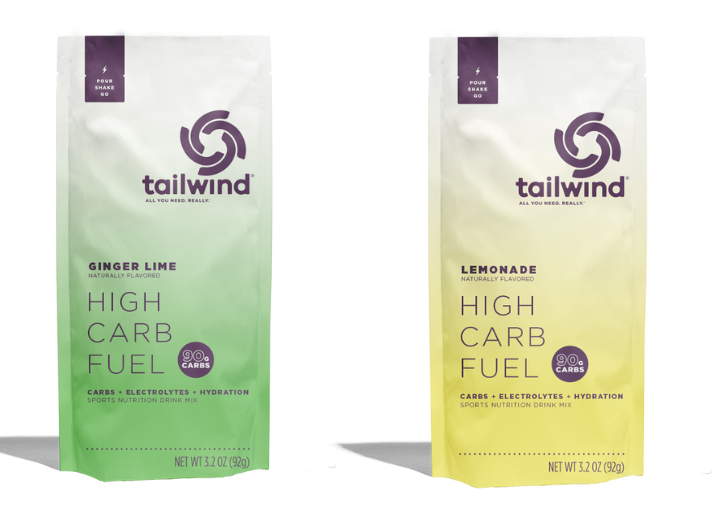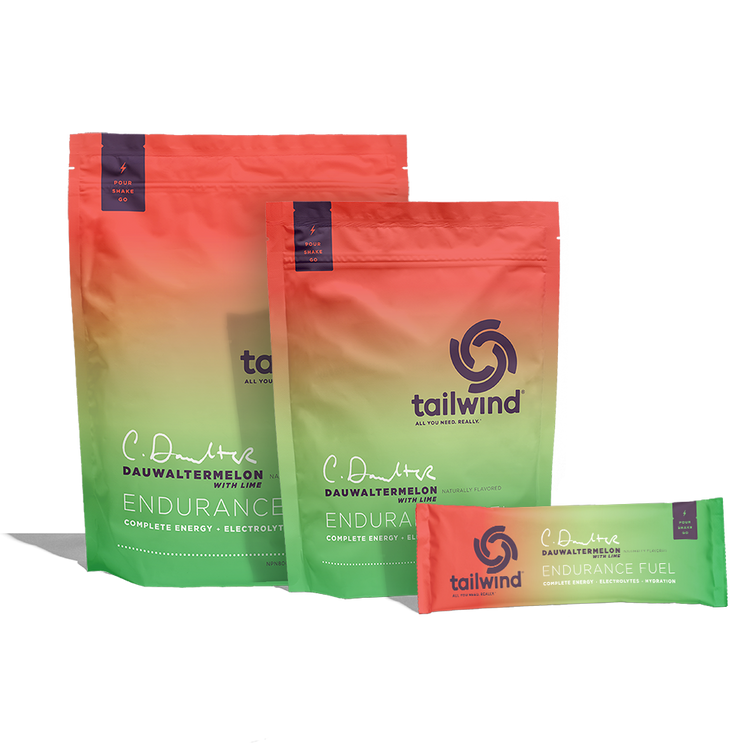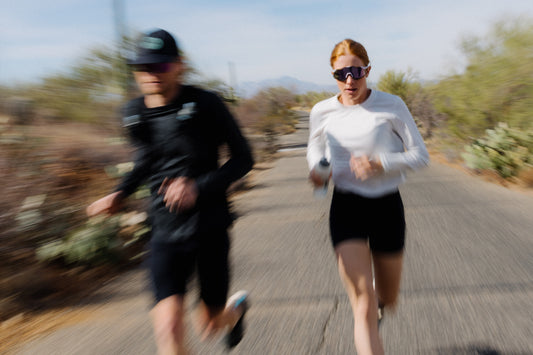7 Ultra Training Tips
3 Comments
By Maggie Guterl, Tailwind Employee & Avid Runner
Meet Maggie
I’m Maggie, the Athletes and Events Manager at Tailwind Nutrition. As a recent Pennsylvania transplant, I’m a kid in a candy store in Durango with all the trails. I have been an ultra runner for close to 10 years and I’ve run everything from road 50Ks to the Barkley Marathons. They say you learn more from your mistakes than from your successes - so that makes me kind of like the ultra running Yoda!
How It All Started
I delayed starting my first ultra for a year because a friend told me it would ruin my body. I read online that you should have X number of marathons under your belt (I had run one) and X number of years of serious running (I had just started). The internet advised that you should most definitely start with a 50k first. The year was 2011 and believe it or not there wasn't a ton of info online on how to run or train for ultras.
So I signed up for my first ultra, a 24 hour race around a loop in Philadelphia in the middle of July, 19 months after my first marathon. I knew nothing about nutrition or training or how to run an ultra. My goal was 100 miles - that’s a 15 minute mile and it seemed easy enough.
Would experience at shorter distances (think more marathons or starting smaller at a 50k) and a few more years of learning have helped me on my first endeavor in ultra running? Yeah, probably. But with such a big first undertaking comes a lot of hard lessons learned. I wouldn't have changed it.
Spoiler Alert
That first 24 hour in 2011 in the sweltering, humid, summer air of Philadelphia was a disaster. After suffering debilitating nausea for about 16 hours and feeling completely depleted, I finally choked down some coke and chicken soup and found my second wind. I ran hard for the last 6 hours and made it just shy of my goal to 97 miles. I knew I could do better.
Fast forward to November 2014, I nailed a 24 hour race in New Jersey. I ran what I dreamed I could run, 142 miles in 24 hours. I earned a spot on the USA National 24 Hour Team and went to Italy the following spring with my 11 teammates to represent the US of A. Our women's team won gold (bonus: I also ran a PR of 146.5 miles). It was one of the proudest moments of my life.
That said, my ultra running success definitely didn’t happen overnight. Between 2011 and 2014 I learned a ton about training and running ultras and I continue to learn new tips and tricks every day. Here are some things I have learned along the way...
My Ultra Tips
- Just go for it - If an ultra sounds like fun to you, don’t let anyone talk you out of it. Trust me, it won’t ruin your knees. It will be hard and the recovery after will be more than you bargained for, but it gets easier (at least the recovery part does).
- Dial in your nutrition - In an ultra if your nutrition is off, your race will be rough. Rougher than it needs to be. That first one for me was rough. In fact, Tailwind didn't even exist then. I took the advice “eat early and often” way too literally. I paid no attention to the quality or kinds of calories I was consuming. I was nauseous and puking by hour 4 of my 24 hour race. In humidity, digestion is even harder. Tailwind Nutrition Endurance Fuel is now my go-to because my body is too busy to digest things. Tailwind is efficient and easy for your body to absorb. I aim for 200 to 250 calories of Tailwind an hour and no longer mess with salt pills or gels.
- Don’t overdo your training - Be as prepared as you can be, but listen to your body. It takes some experience and sometimes hard lessons to really listen to your body. If you’ve been running 20 miles a week for a while and the race you want to run is too soon for you to safely build up to the appropriate weekly mileage, it might be a good idea to choose a race further down the line.
- Speed can help you - You already know how to run slow. Adding speed work or continuing to do speed work will help you in the long run (no pun intended). When you are depleted and fatigued at the end of an ultra, a two or three minute slower pace per mile can feel like your 5k pace. Speed work can help these final fatigued-filled miles be faster.
- Train for the terrain - Train on the same terrain you will be racing on and if you can’t find the exact terrain, simulate it as best you can. Don’t have big mountains? Do hill repeats. Live somewhere flat? Run stairs. Will the course be technical (lots of rocks, roots and natural obstacles)? Get to technical trails. Don’t have technical trails around? Try foot drills in the gym or with objects in your garage (they will help your coordination). It is still good to mix up terrain. For speed, you will need some smooth ground, like pavement or dirt roads, to get the fast foot turnover. Even if you are running a flat race, hills can benefit you and make you stronger.
- Don’t just run - Be well rounded. A strong core is important and working your legs can help delay fatigue even longer. Work your quads for those long, sustained downhills and the glutes for the steep, grueling uphills. Your low back can start to hurt after hours of carrying a hydration pack or running with handhelds, so a strong core and upper body work are important. Remember, your body is a chain. Everything is connected and if there is a weak link it will manifest itself after hours of running. Sometimes that just means more pain, but it can also lead to over-compensation or even injury.
- Recovery is important - Make sure you fuel after a run. I neglected this for years - I never felt like eating after so I just didn’t. My first two years of running I remember existing in a constant state of soreness and fatigue. These days I still don’t like to eat right after, so I drink Tailwind Nutrition Recovery Mix. It has the right amount of complete protein and carbs (think simple sugars) to replenish my glycogen stores and rebuild my muscles. It even has electrolytes to rehydrate. Just mix two scoops with 16 oz of cold water and it will change your recovery game!
You Got This!
There could be a whole blog post just on mental tricks for ultra runners. I think it’s accurate to say ultras are 20% physical, 80% nutrition and 100% mental. Yes, that's 200%!
Stay focused on why you started in the first place. Choose a goal that you are passionate and excited about. It’s ok to be nervous and scared - that usually means you made the right choice in undertaking your goal. Don’t be caught off guard when you lose sight of your goal during the race or when the going gets tough. As the Marines say, “embrace the suck”. Even try welcoming it - it makes the finish and your accomplishment that much sweeter at the end.
Good luck and trust me, you will be proud!







3 comments
Love this! I also have found running to be a learning and development experience. I’ve been running for the past 8 years and always feel like I’m growing as a runner and an athlete, learning from others in the field — this article is no exception! Thanks for sharing. :)
1 roas marathon done 2yrs ago and the trails bug has bitten hard.1st ultra 58k in Sept so hearing Maggies story is inspiring.I have been using tailwind for the last year and it has helped me so much as I suffered GI issues.Amazing product so thank you so much Courtney dauwalter as this is where I spotted it first.👣👣👣👣
Thanks for writing this! I thought I “retired” after my first 50 miler at Tunnel Hill, but now have my sites on TH 100, this November. I’ll be running in memory of Atlee Burpee, who loved Hundos and got me to my first 50 miler. #guardianpacer